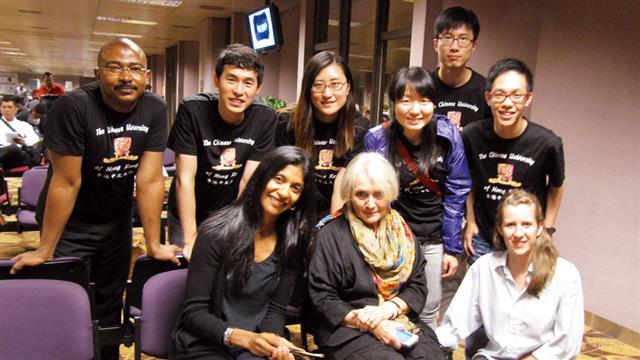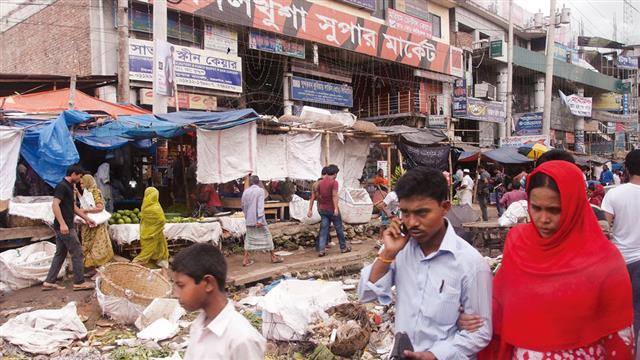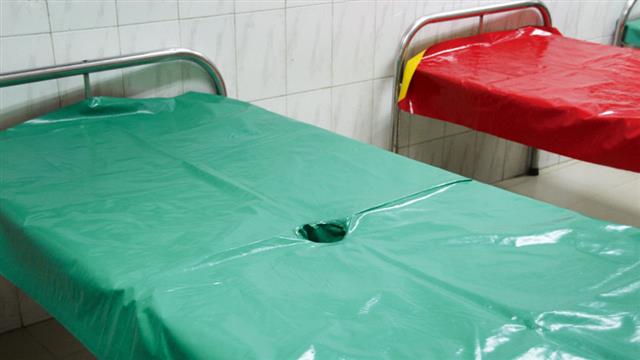'Given that the nation is relatively poor, the hospital facilities at Bangladesh are better than I expected. I was quite surprised and impressed by them,' said Ms. Maria N.Y. Cheng, Master student of public health (MPH), Jockey Club School of Public Health and Primary Care (JCSPHPC), who spent six days in Bangladesh in July with other eight students and teachers from the school as part of a global health summer course.
The trip allowed them to gain exposure to developing countries and to experience global health principles in action. It also enabled the school to establish ongoing collaboration and mutual exchange with the Bangladesh health community.
According to Mr. Higgins H.K. Yuen, MPH student, the trip was really fruitful and eye-opening. He said, 'Through listening to the lectures, visiting the health care facilities and discussing with local medical students, we could gain a more thorough picture on how primary care services are delivered and how people can gain access to the services in this nation.'
When the team arrived in Dhaka, the capital of Bangladesh, it was almost midnight and it was in the midst of Ramadan. A small van carried them to the Green Life Medical College (GLMC). They were surprised that there were no traffic lights or lanes and the street was extremely chaotic. According to the Road Safety Cell of the Bangladesh Road Transportation Authority, the annual fatality in road accident in Bangladesh is 85.6 per 10,000 vehicles.
Many people in Bangladesh suffer spinal injuries and paralysis not only from the heavy road traffic accidents but also some man-made disasters. The team members went to visit the Centre for the Rehabilitation for the Paralyzed in the Centre Savar Occupational Recovery Clinic. It was a moving experience when they saw young men and women who had lost their legs and arms. There were even special wards for victims from the Rana Plaza tragedy. Rana Plaza collapsed in April killing 1,129 people. It's also known as one of the worst industrial accidents in the world.
It is rare to have a hospital solely for diarrhea patients. However, there is one in Bangladesh and the team visited the International Centre for Diarrheal Disease Research, Bangladesh. Diarrheal illness is one of the leading causes of child mortality in Bangladesh. The hospital also has a special Intensive Care Unit ward for newborn babies, a children malnutrition rehabilitation ward and an isolated ward for HIV positive patients. They were surprised by the unique treating bed for the patients with diarrhea in hospital. There was a hole in the middle of the bed and also a plastic bucket under the bed collecting the waste, which was to assess patient's output of dehydration. Team members were all impressed by the facilities and the health care people who were dedicated and doing their best with the limited resources.
The team interacted with medical students from the GLMC, gave presentations on public health topics and led interactive small group discussions. Discussion topics ranged from health financing to urban-planning, from migrants health to climate change and disaster management, as well as adolescent health and clinical screening.
Prof. Sian Griffiths, director of the Centre for Global Health of the JCSPHPC, who led the team, said, 'Visiting Bangladesh was a powerful experience for us all—one which allowed us to see first-hand the problems of poverty and the importance of public health measures. We will continue to develop our link and share experiences with our colleagues and friends in Bangladesh.' She also revealed that the Centre for Global Health and the GLMC have signed the MOU to continually carry on the global health summer course in Bangladesh. MPH students as well as BSc public health students will be brought to the field. 'We are planning a household survey in Bangladesh communities focusing on health care and hope the study will provide valuable statistics and political recommendations for improving health care system there.'
Prof. Anisha Abraham, team member and clinical professional consultant of JCSPHPC, said, 'I thought it was a wonderful opportunity for our students to understand the complexities of public health issues in a developing country such as sanitation, diarrheal illness and over-population. The trip to Bangladesh helped to put theoretical concepts into a real world context.'





